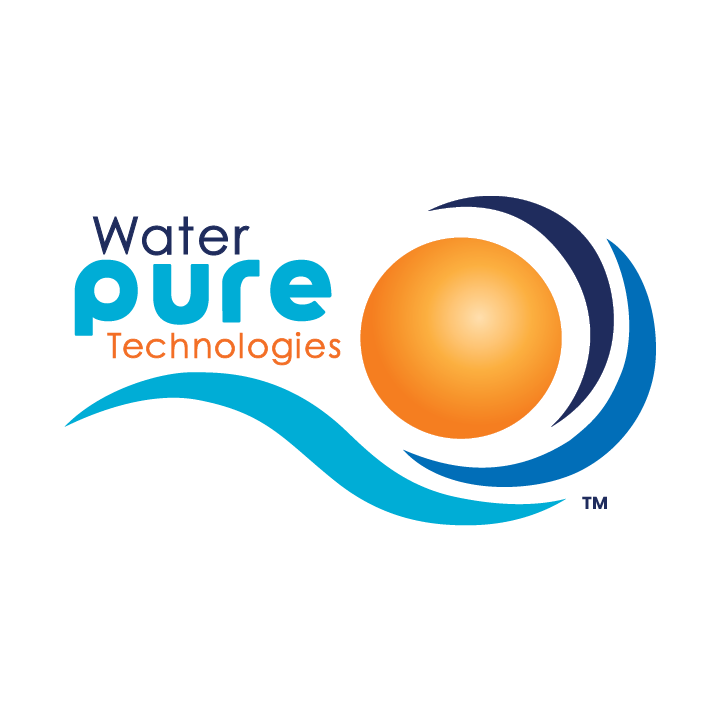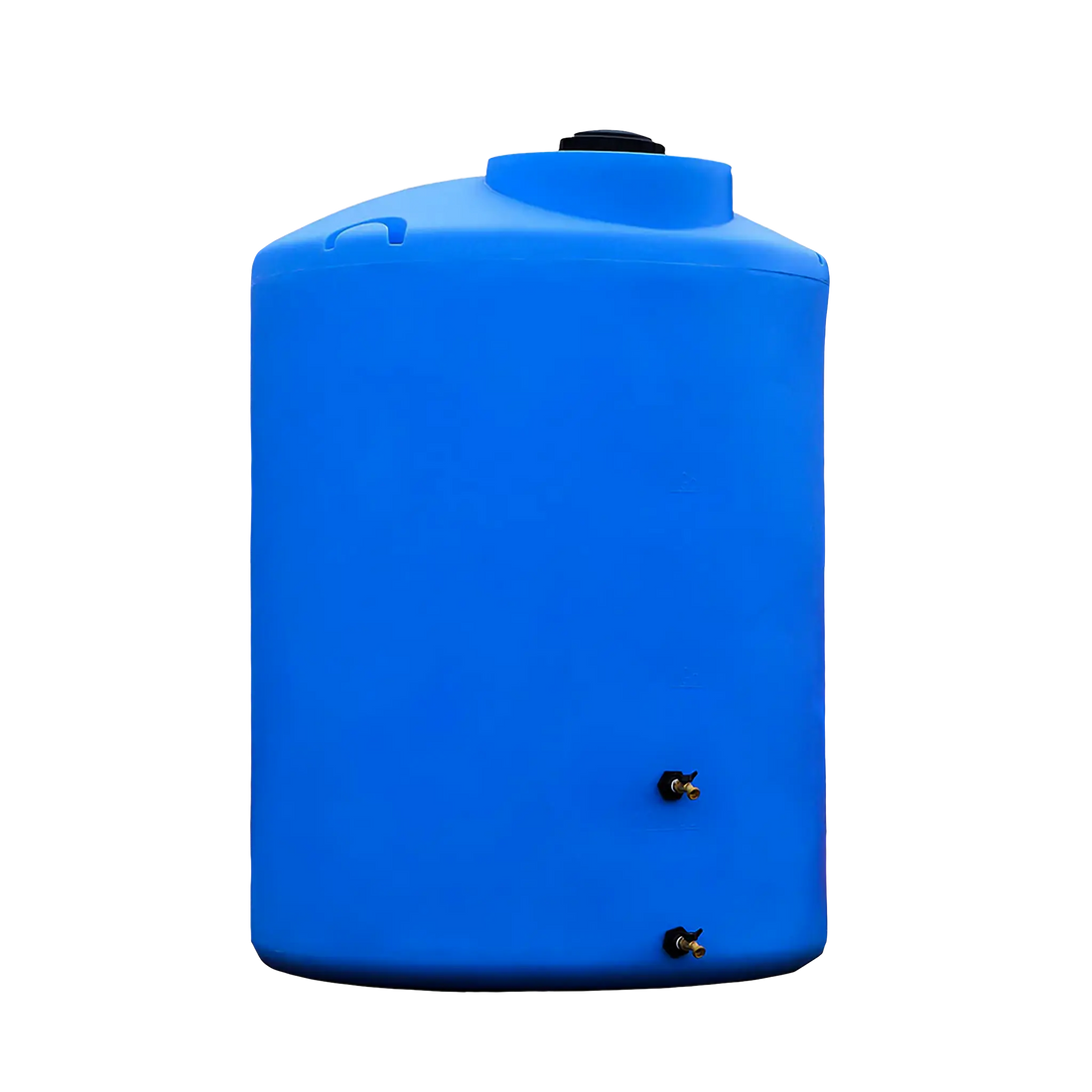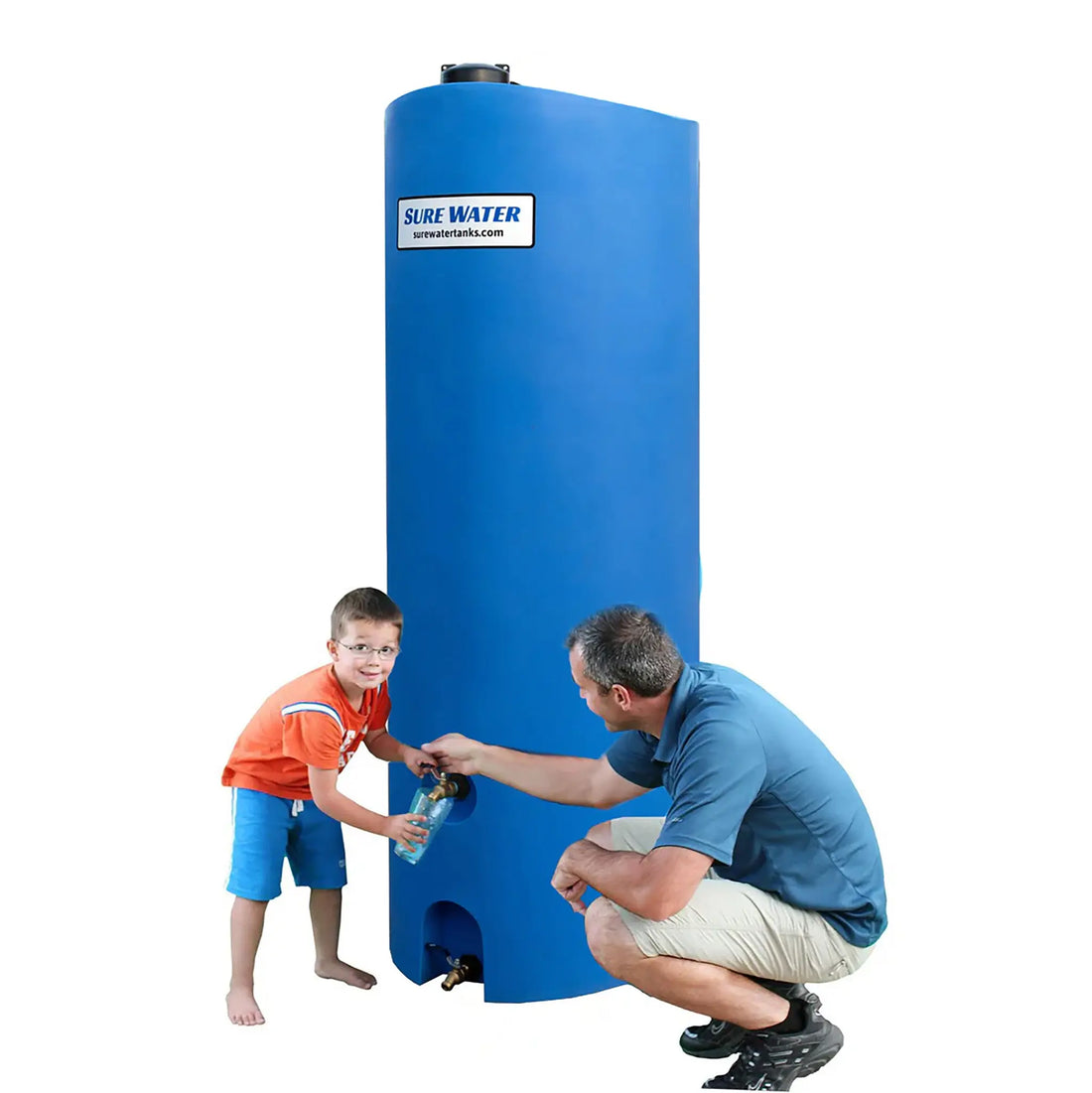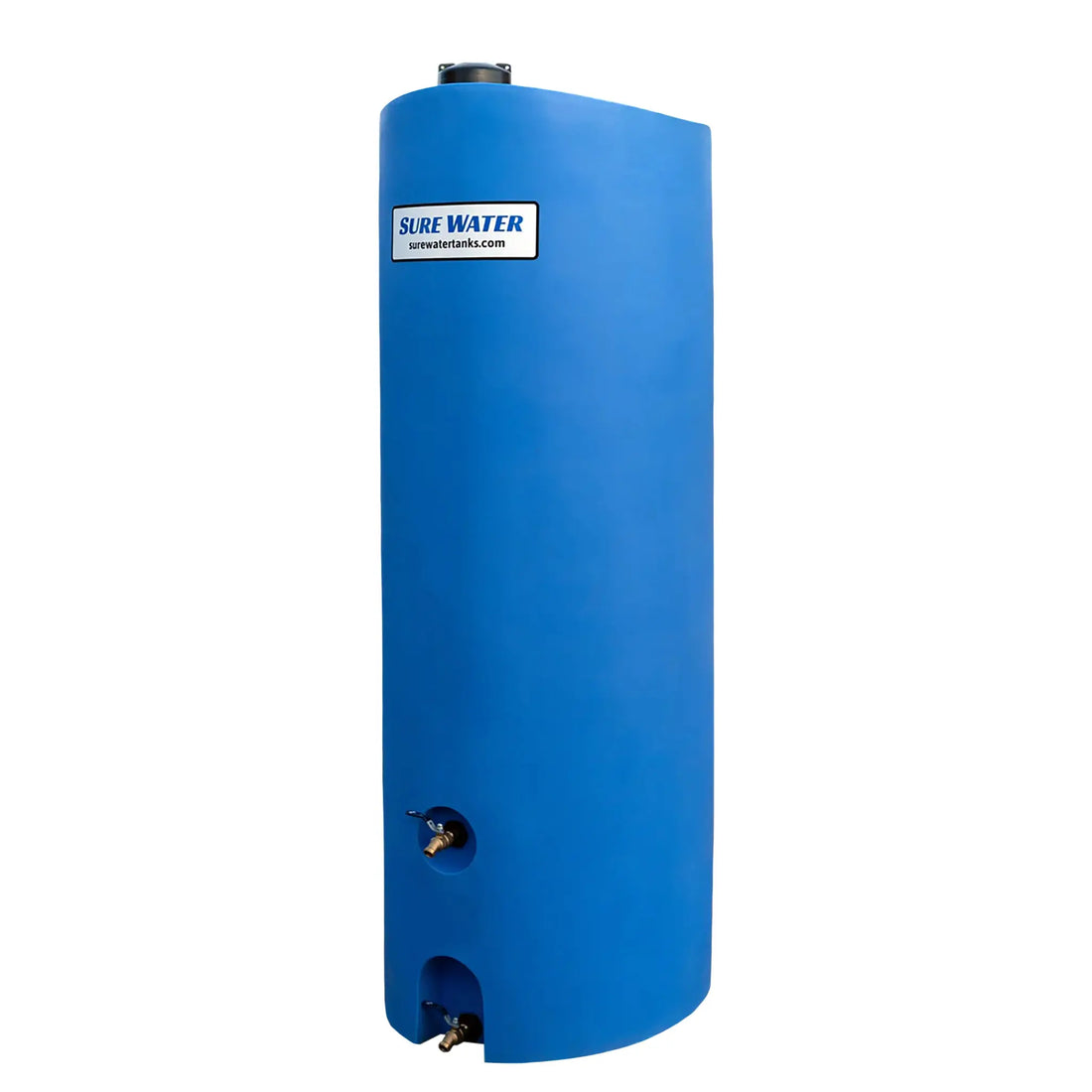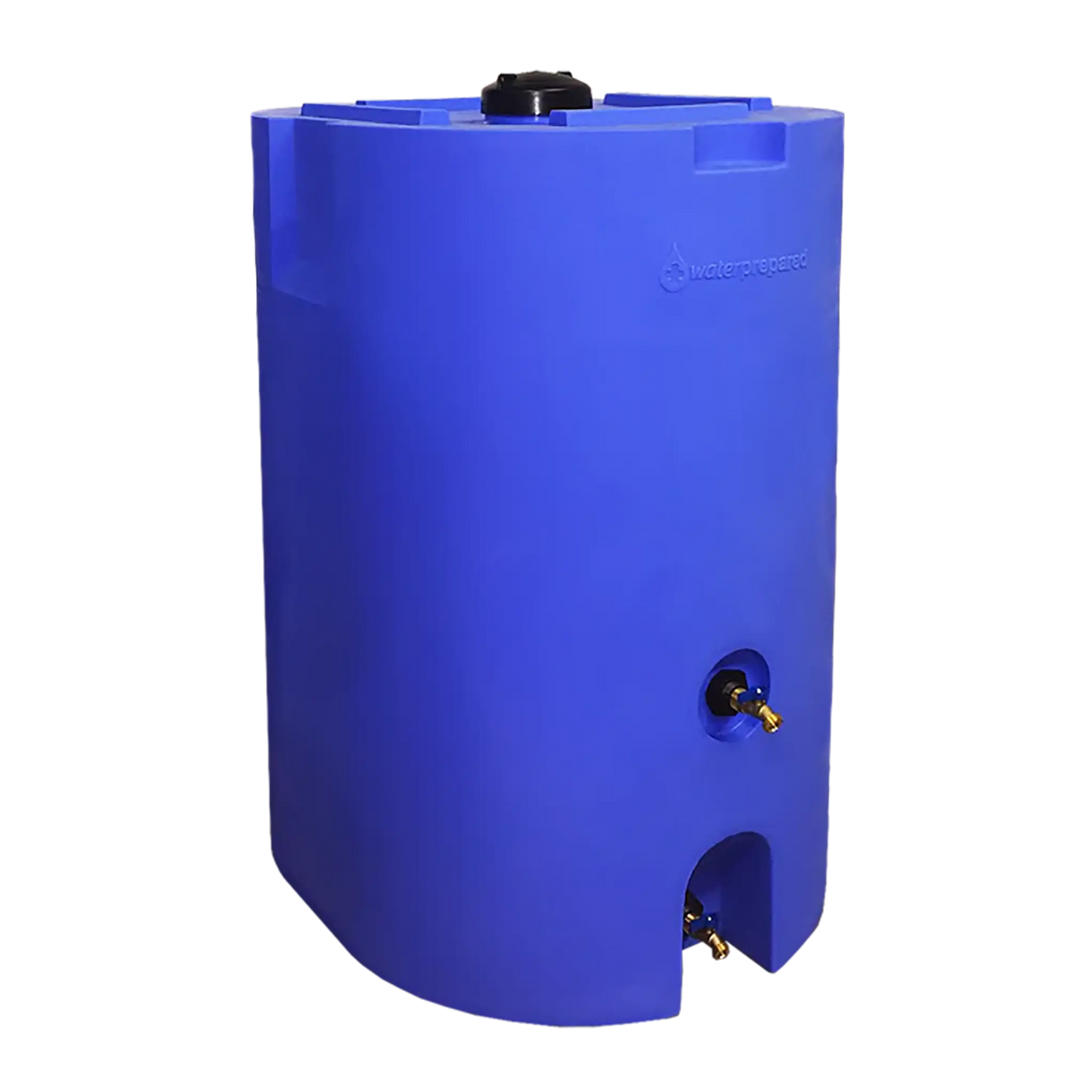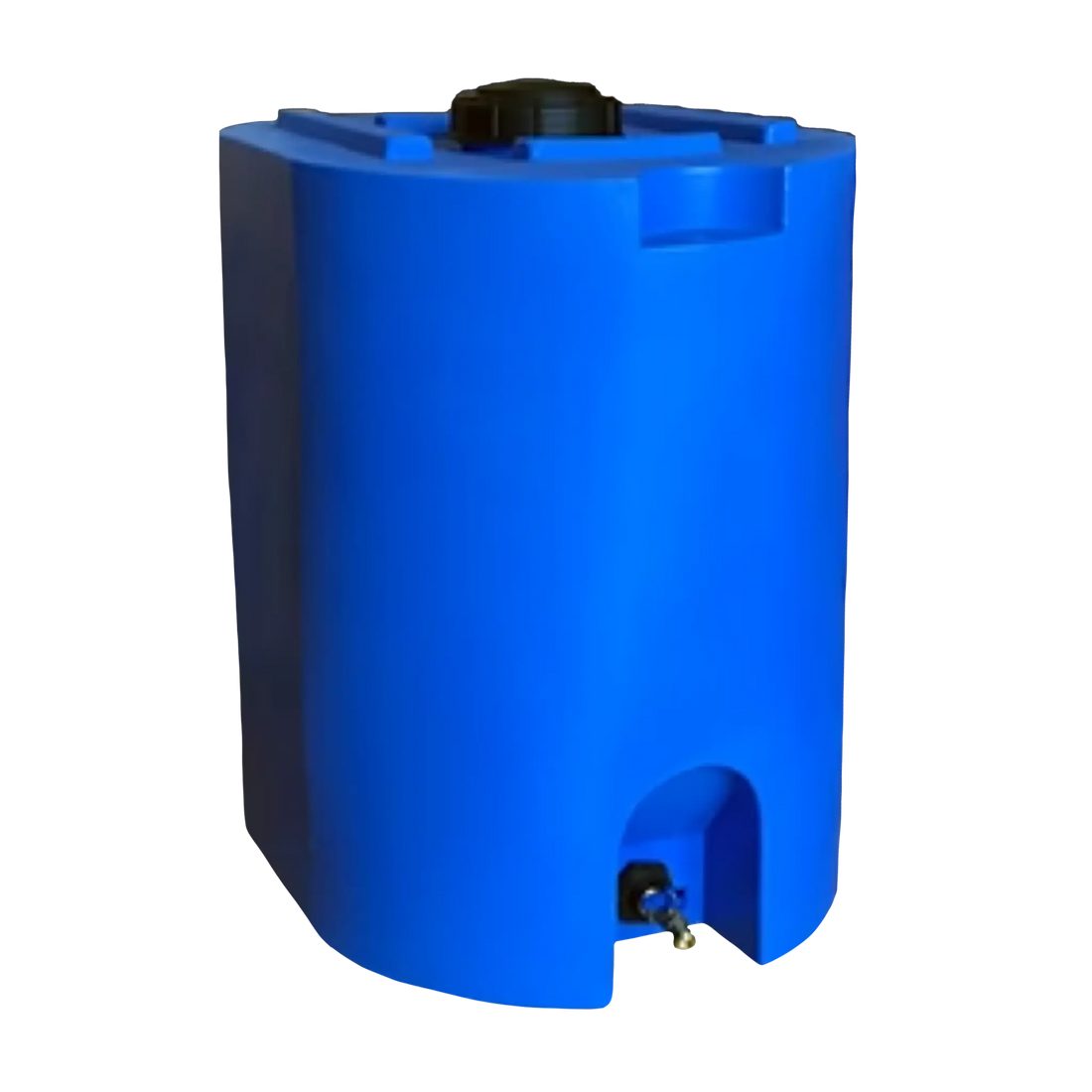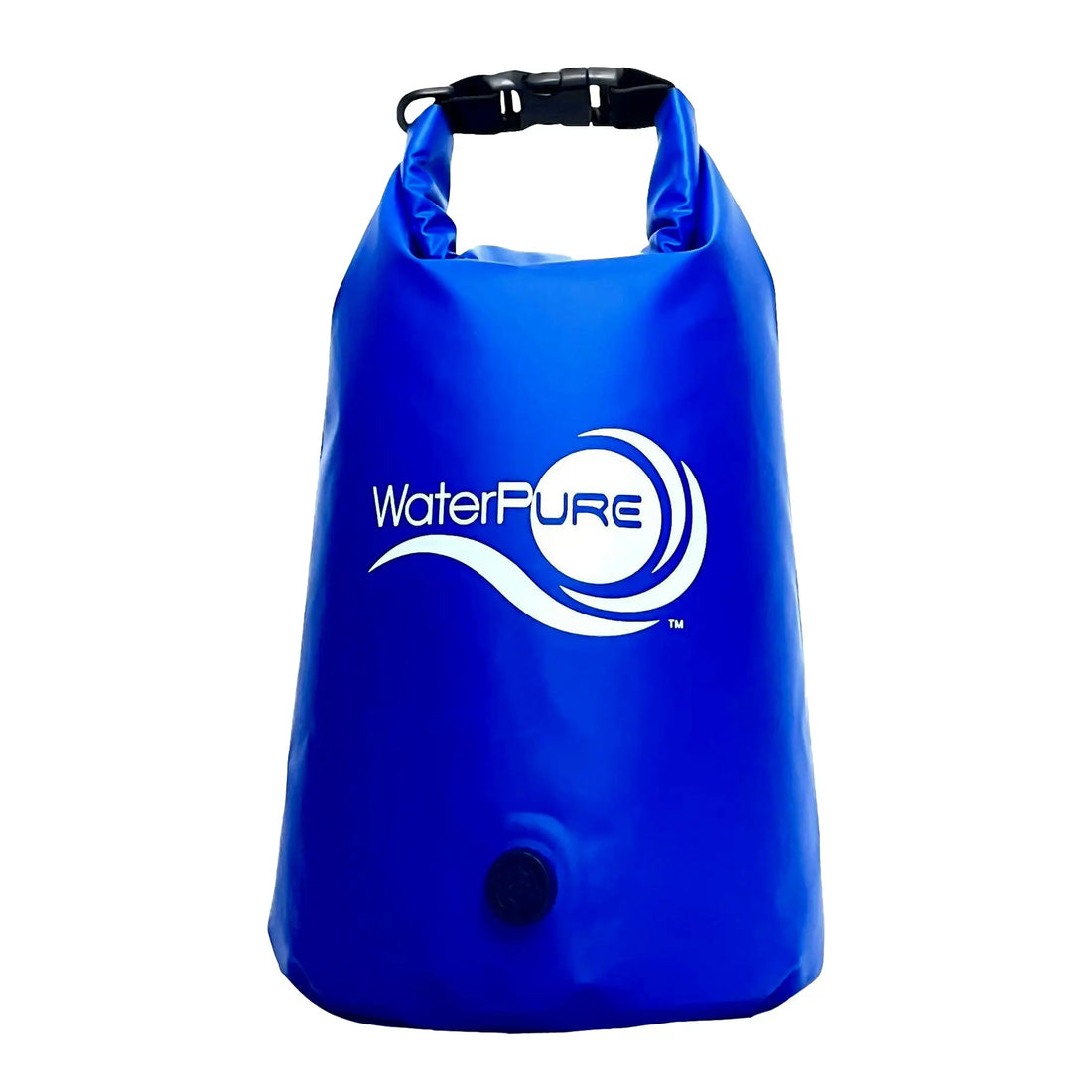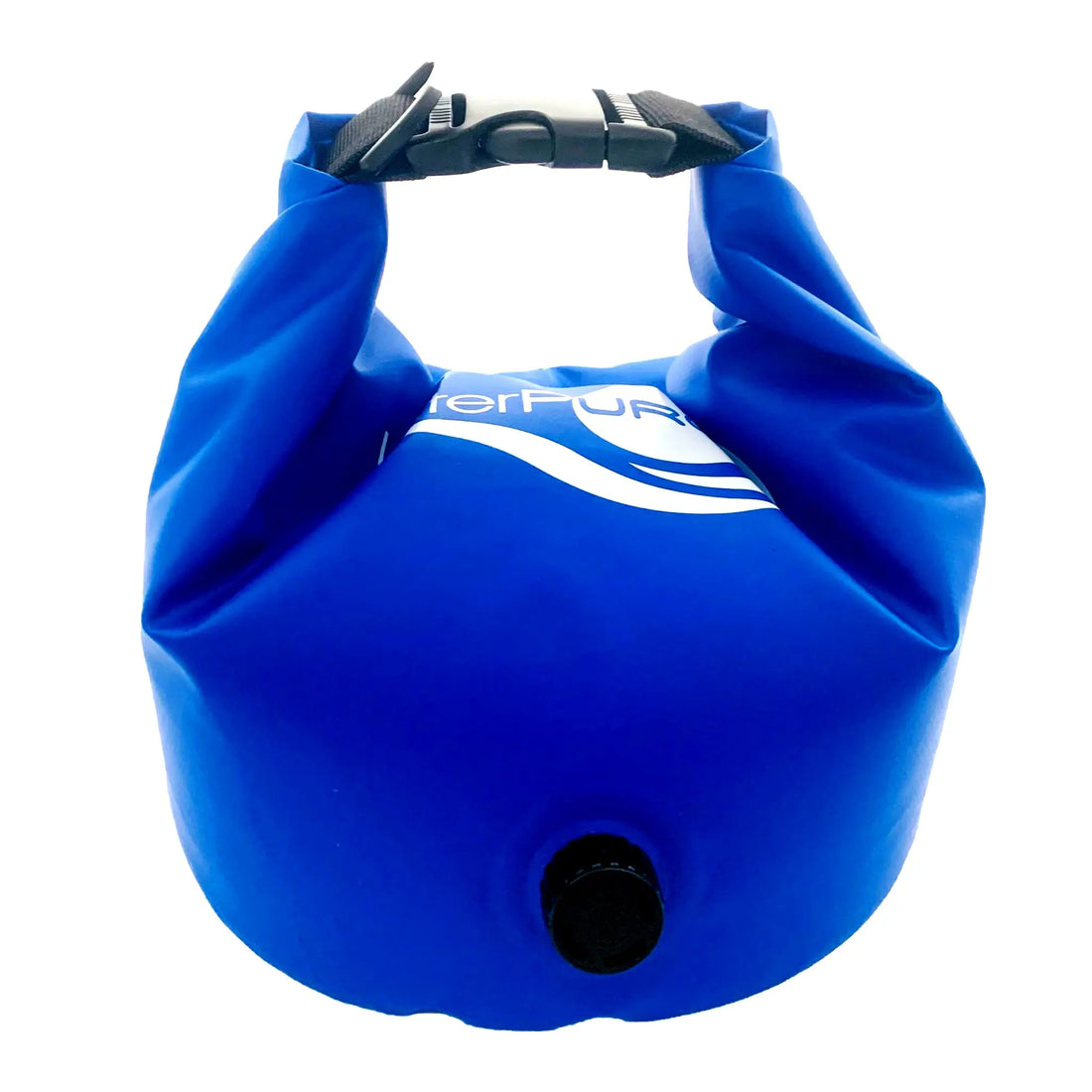- Featured
- Best selling
- Alphabetically, A-Z
- Alphabetically, Z-A
- Price, low to high
- Price, high to low
- Date, old to new
- Date, new to old
Water Storage Solutions for Everyone
Our water storage containers come in a range of sizes—from compact, portable units to large-capacity tanks—making them adaptable to various residential, commercial, and emergency preparedness needs. When selecting a container, accessibility is key. Features like wide openings for easy filling and cleaning, stackable designs for space efficiency, and integrated spigots or valves for controlled dispensing improve usability across settings. Durable materials that meet food-grade or potable water standards are also important, particularly for long-term storage. Whether used indoors or out, well-designed containers support efficient water management while allowing quick access when it matters most.
Understanding Water Storage
Experience the ultimate durability with WaterPrepared & SureWater water storage tanks. Crafted from robust, BPA-free, FDA/NSF-approved high-density polyethylene (HDPE), our tanks are expertly engineered to withstand the immense pressure of hundreds of gallons of water for decades to come.
These water storage containers and tanks are designed to safely store and provide water for emergency situations. Each container comes with a box of H2O Res-Q water conditioning liquid mineral drops for long lasting water quality.
The Importance of Water Storage
Water storage is crucial because it ensures water accessibility during drought and periods of water insecurity. We all rely on water for daily activities like drinking, cooking, and cleaning. However, natural disasters or seasonal changes can disrupt our water supply, so it's vital to have a backup. Through proper water storage techniques, families can guarantee access to safe drinking water. This becomes even more important in areas where water sources are limited or during droughts, where every drop counts.
Types of Water Storage Solutions
There are various methods for storing water, including tanks, barrels, and underground reservoirs. Water tanks are popular in households, often made from materials like plastic or metal, which protect water from contamination. Rain barrels are also an eco-friendly option; they collect rainwater runoff from roofs. Additionally, underground reservoirs can hold large volumes of water, providing a reliable source for irrigation and other uses. Therefore, choosing the right solution involves considering factors like capacity and location.
Best Practices for Water Storage
To store water safely, it’s essential to follow some best practices. First, always use clean containers to prevent contamination. Also, it's important to store water in a cool, dark place to minimize algae growth. Treating water with water conditioners, mineral drops or bleach can also help ensure it remains safe. Additionally, regularly check and rotate your stored water supply, replacing older water every six months. With careful planning and maintenance water storage can be a long term solution for water security for everyone.


